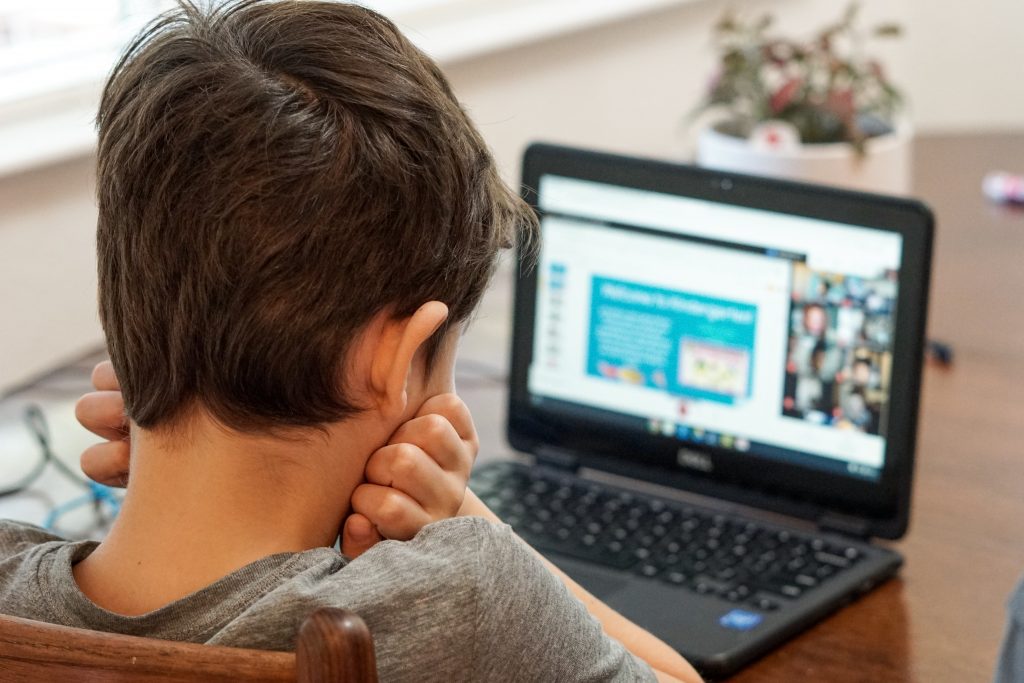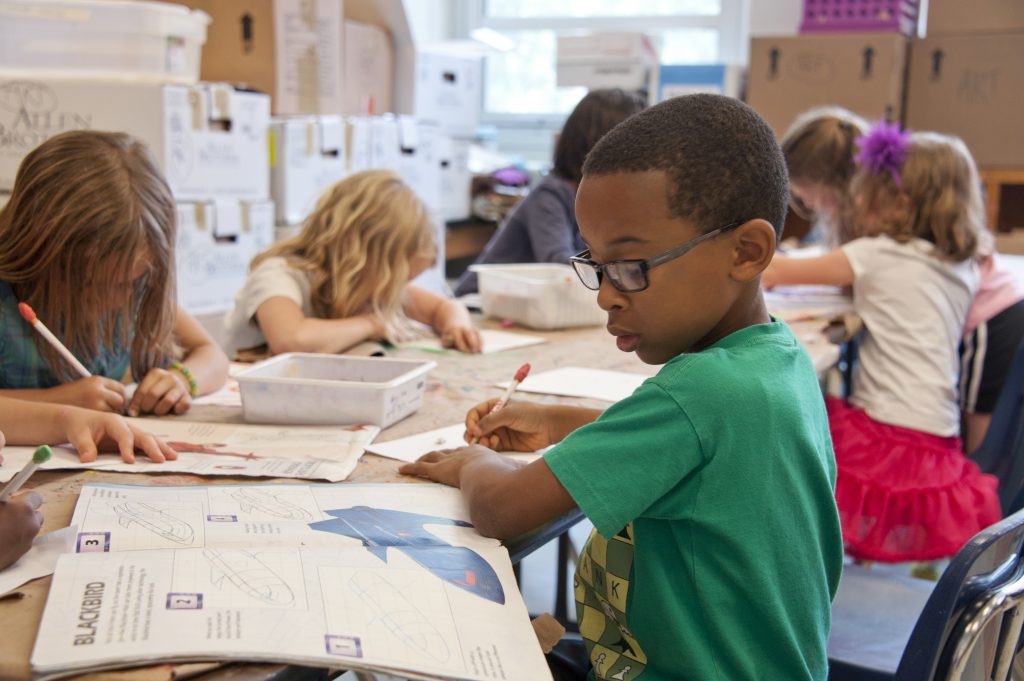Homeschool Programs: Which One Is Right For Your Child?
Choosing from all the different homeschool programs can be overwhelming. We look at some of the most popular styles to find a good fit

It used to be that when one decided to start homeschooling, the decision was “simple” in that a child would be removed from public school and given a traditional curriculum at home. The main driver of a homeschool program, in this sense, was to have the more classical educational elements happening at home instead of in a brick-and-mortar building. The textbooks and skills were mostly the same, it was just the four walls that changed. And there were many fewer kids around.
But these days, with homeschooling becoming more and more popular each passing year, all kinds of different styles and homeschool programs have popped up to shape the experience. Just saying you are homeschooling now doesn’t mean you are taking the same approach as another homeschooling family. In this way, homeschooling now exists on a much broader spectrum.
In our Ultimate Guide To Homeschooling, we took a look at all the ins and outs of homeschooling and the different factors that could go into choosing this path for your child or children. It was a comprehensive look at some of the major questions and considerations to weigh when taking the plunge. Here, we’ll begin to drill down on the styles and programs that are being used in different homeschool settings. You’ll see that there are all kinds of options, really for every kind of learner or household. None are the be-all-end-all by any stretch of the imagination, and many families use a hybrid approach.
Traditional or Classical Homeschool Programs

For many, especially if new to homeschooling, or those weighing public school vs. homeschool, this style and homeschool program will be the easiest to picture. That’s because it’s what most closely mirrors the traditional public schooling model, and has some of the best homeschool curriculum out there. In a traditional or classical homeschool program, children are often working through a preplanned curriculum that runs in parallel to what is happening in the actual school setting. The reason this is often the most popular is pretty simple: it’s what parents understand the most.
Because homeschooling is rising in popularity, many parents who are facilitating a homeschool approach actually went to school themselves. Using a classical homeschool program with their own children does create at least an ease-of-use piece that helps with the transition.
In this homeschooling program, students will work through the core subjects we often see in classrooms. That will include math, reading, writing, social studies (or humanities), and science for starters. Often in this model, parents, and students are working through a packaged curriculum (there are many) that follows along with the current state core curriculum content standards. While students might progress faster (or move slower) than students their same age, there is a clear linear progression through the work. Classical homeschooling is often the easiest to track and document, especially if state regulations require you to do so.
Pros of Traditional Homeschooling
It’s easy, pre-planned, moves grade-by-grade, and mirrors what many vision to be a solid educational practice. Much of it is turnkey.
Cons of Traditional Homeschooling
It might not allow for varying interests among learners. Certain curriculums might not align with a child’s specific learning style.
Waldorf Homeschool Programs

The Waldorf method of education has been around for more than a century after first being developed and popularized by Rudolf Steiner. At an early age and implementation, Waldorf homeschooling has very little in common with traditional homeschooling. The central idea behind Waldorf education is a somewhat unstructured (at least to start) focus on early childhood development through play and imagination. The Waldorf homeschool program doesn’t bring in all hallmarks of traditional schooling (the three R’s) but instead focuses on the child creating their own rhythms, with an emphasis on play and being a part of nature.
Article continues below headlines

The Best Type Of Butter Dish For Your Home Kitchen
The history of the butter dish is intertwined with the history of butter itself and the evolution of dining etiquette. …
Continue reading "The Best Type Of Butter Dish For Your Home Kitchen"
The post The Best Type Of Butter Dish For Your Home Kitchen appeared first on Tell Me Best.
Continue
The Medieval Fantasy Anime With The Most Underrated Hero Of All Time | GIANT FREAKIN ROBOT
Ranking of Kings starts strong with fairytale vibes and an adorably innocent main character. While it gets a little lost …Continue reading "The Medieval Fantasy Anime With The Most Underrated Hero Of All Time"
ContinueThere are obviously major differences in the Waldorf homeschooling program, and there is a loose fabric of learning that tends to move at a slower pace allowing students to learn in their own time. As they get older, more traditional educational practices are folded in, but it’s at a slower pace and typically involves the imaginary world as a breeding ground for creativity.
Pros of Waldorf
A child is more able to be a child, especially at a young age. With less academic rigor, more free and imaginative play is encouraged. There is still some focus on general academics.
Cons of Waldorf
In a technological age, Waldorf homeschool programs avoid devices until an older age (for some this is a positive mind you). Lack of core academics early might make traditional schooling down the line more difficult.
Montessori Style

Montessori, like Waldorf, has some of its baselines in brick-and-mortar schools. This is to say, there are Waldorf and Montessori schools that children can attend if parents so choose. But the methods are translatable to a homeschool environment as well and can be implemented on a more individual basis. There are other similarities with Waldorf schooling in that play is encouraged at a young age and children are allowed to more freely explore their environment without it being under the umbrella of an academic-based curriculum.
Montessori homeschool programs will have an adult typically facilitating some of this or there to help if an issue arises from the child. The focus in this style of education is on the whole child with emotional, social, physical, and cognitive growth all key components. There is a structure to this that can be implemented, and Montessori education tends to deal in real-world problems and solutions even at a young age.
Benefits of Montessori
Fosters independence for the child from a young age. Is a very hands-on homeschool program for the learner and allows for autonomy and confidence-building at a young age. Tends to promote creativity at a high level.
Drawbacks of Montesorri
Montessori, in a single home, can end up requiring (or will benefit from) a great deal of material and pre-planning to set up the right environment. It may not translate to traditional academics later.
Charlotte Mason Homeschool Programs

Charlotte Mason developed this educational philosophy back in the late 19th century and from a homeschooling perspective, this style has been most associated with those seeking to leave public schooling because of their religious beliefs. While the Charlotte Mason homeschool program isn’t tied directly to a Christian belief system, it’s been often put into that box because of Moore herself (she was a Christian) and its adoption in religious homeschooling groups over the years.
Charlotte Mason homeschool programming is extremely rich in literature and writing, encouraging students and learners to draw from a variety of different texts. It will often involve reading passages or books and narrating them back to a listener and putting things in their words. Again, writing and reading are at the core of this style and there are texts introduced that might be outside of what would appear in a traditional school setting.
Finally, there is a natural element to Charlotte Mason homeschooling with learners encouraged to make the outdoors part of their learning. Journaling about and experiencing natural setting and the world around them often makes this style a popular choice.
Pros of Charlotte Mason
Those who value reading and literature will really gravitate to this homeschool program. It’s been a time-honored method for homeschoolers.
Cons of Charlotte Mason
Costs can accumulate because of the literature needed to supply the learner. Those seeking a traditional academic curriculum might find math and science are undertaught.
Unschooling

This style of homeschooling might be the most nebulous and hardest to define, though it is definitely considered a method. Unlike the other homeschool programs, unschooling inverts the structure and makes it almost completely child-led. In an unschooling approach, children are often working to remove or distance themselves from anything resembling traditional schooling. This isn’t to say there are no academics to speak of, but rather there isn’t the same central plan as classical homeschooling or even the other alternatives listed above.
In this unschooling, such as it were, the child is given relative autonomy and there is a trust that he or she will learn through their own interests. The parent, in this style, is there to help encourage or support these interests along the way. It isn’t hands-off though because when children show interest in things it is up to the parent to provide continued ways to enrich those interests.
Unschooling can be difficult, especially for those trained in traditional schooling because the baselines and benchmarks simply aren’t there to know if the child is meeting them. There is a certain trust that children are learners at their core.
Pros of Unschooling
Children have considerable freedom. Parents can be certain the educational landscape is shaped to the child’s interest.
Cons of Unschooling
It can be too unstructured for many people’s comfort levels. Entering an academic landscape later could prove difficult.
Worldschooling or Roadschooling

I’m combining these two homeschool programs not because they are exactly the same, but for most outside observers they are going to have more similarities than differences. For the most part, the names say it all. In worldschooling, children (and their families by proxy) are out in the world experiencing what the globe has to offer and curating educational experiences from those visits and stops. Roadschooling is much the same, though it’s typically done through travel in RVs and the like.
Again, on a logistical level, they are quite similar, with families usually heading out as a unit to travel (or road trip) and the educational experiences are picked up along the way. There might be planning around different units or themes, but often the learning moments are on the fly or within a new cultural context. These might involve some of the other methods above seeing as how they aren’t mutually exclusive to the travel piece (people can travel with books and supplies) but in worldschooling and roadschooling the style is shaped by the new experiences.
Pros of Worldschooling or Roadschooling
Offers a significantly more worldly view to education than other models. Incredibly experiential in ways other models aren’t.
Cons of Worldschooling or Roadschooling
Requires full family buy-in. Is considerably different than the vast majority of other educational practices. Can have a high cost.
In Summary
These aren’t the only styles of homeschool programs, and many families will use hybrid models that involve pieces of a few different types. One of the gifts of homeschooling is being able to structure and shape a homeschool program that works best for your child.







